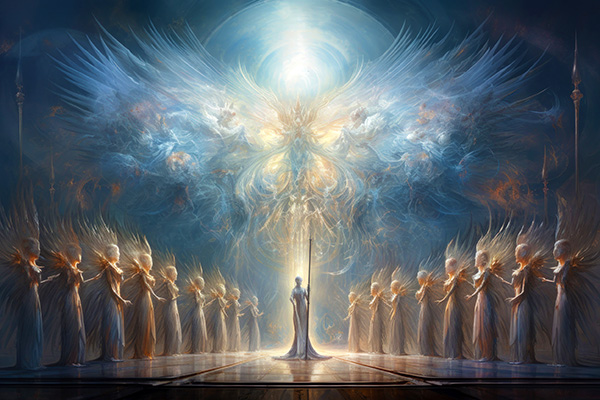spiritual healing
The Difference Between Soul Rescue And Soul Retrieval
 In shamanic and spiritual traditions, soul recovery practices are based on the understanding that a person’s soul essence or ‘life force’ can become fragmented or lost due to trauma.
In shamanic and spiritual traditions, soul recovery practices are based on the understanding that a person’s soul essence or ‘life force’ can become fragmented or lost due to trauma.
While these two shamanic arts are closely related and often assumed to be the same practcie, they refer to different contexts of healing. There is a subtle, but key difference.
Soul retrieval is the most common term used in modern shamanism and it is based on the idea of soul loss.
When a person experiences a severe physical or emotional trauma, such as an accident, abuse, grief, or a difficult breakup, a part of their vital essence may abandon the body to survive the experience. This is essentially a spiritual survival mechanism, similar to dissociation in psychology.
This disassociation might be related to the trauma of a car accident or extreme injury, or perhaps a memory of a time in someone’s life when an attribute of their soul felt threatened or fearful.
Other typical examples include physical, sexual or emotional abuse as a child; a feeling of abandonment after the death of a relative; financial ruin; nearly dying; or loss of a job.
Someone suffering from this kind of soul loss might feel “spaced out,” numb, incomplete, or like they are watching their life from the sidelines. Chronic depression or a sense that “I haven’t been the same” since the traumatic event are common indicators.
The Hidden Blessing Of Dysfunctional Parents
 For those of us who grew up with dysfunctional or abusive parents, the journey of healing is not a straight path. It twists and turns through shadows of anger, grief, and longing.
For those of us who grew up with dysfunctional or abusive parents, the journey of healing is not a straight path. It twists and turns through shadows of anger, grief, and longing.
But, within this curse always lies a paradoxical hidden blessing or two. Even the most wounded parents can be our teachers and a source of inspiration, not because of what they gave us, but because of what they could not.
Yes, dysfunctional and abusive parents can be an inspiration. Not in the sentimental sense of gratitude for their suffering, but in the clear-eyed recognition that their brokenness became the rich soil in which your awareness grew.
A damaged parent can inspire you to live more consciously, to love with intention, and to stop the cycle of ancestral pain that shaped them and you.
They can inspire you to use their example as a guide for what not to do, what not to say, and who not to become.
Their absence of nurturing can ignite within you the sacred resolve to be present and compassionate. Their harshness can awaken your gentleness. Their coldness can teach you warmth. The rejection you endured can remind you daily to make every person you love feel safe, seen, and cherished!
Even if your parents were never healed, you can be. Even if they never awakened, you can awaken. Their story does not have to become your destiny. You can use their limitations as fuel to create something better, purer, and truer.
Heal Your Life With The Great Law
 Do you have a lot of recurring drama in your life and the same negative situations repeating again and again? Do you keep attracting the same kind of toxic people and energy thieves into your life?
Do you have a lot of recurring drama in your life and the same negative situations repeating again and again? Do you keep attracting the same kind of toxic people and energy thieves into your life?
If so, you may benefit from learning more about the laws of karma and how to apply them in your everyday life, as these universal laws can transform your life for the better if we honor them in our spiritual practice and daily life.
Hindu and Buddhist spirituality recognizes 12 Laws of Karma. The first and most important of these is The Great Law, also known as the Law of Cause and Effect. This fundamental karmic law has helped me a lot to uncomplicate my own life since my spiritual awakening.
The Great Law teaches that whatever we sow, we shall reap. Every cause has an effect. Whatever put out into the world will eventually come back to us. Even the good and bad things we wish upon others will return to bless, or curse us.
Once we understand the role of The Great Law in our life, we become more aware of how we can eliminate negative patterns in our life and begin to attract more positive, new things.
The energy we emanate each day in the form of thoughts, wishes, fears, desires, attitudes, and beliefs will determine what will return to us as manifested experiences, events and circumstances.
Intention is everything in karmic law. For example, you start dating someone, but you live in fear of that person leaving you, or betraying you, so you are emanating an energy frequency of fear. In the end, it is very likely that you will lose that person. Fear attracts fear, love attracts love, and gratitude attracts gratitude. It’s that simple.
Staying Spiritually Nourished In A Digital World
 If you’re feeling stuck in cycles of anger, sadness, anxiety, or fatigue, take a moment to ask yourself: what am I consuming?
If you’re feeling stuck in cycles of anger, sadness, anxiety, or fatigue, take a moment to ask yourself: what am I consuming?
This question goes far beyond food. Are you consuming negativity online? Are you surrounding yourself with people who drain rather than uplift? Are you spending more time in front of a screen than under the sky?
Everything you consume and engage with in this world either feeds your inner light or diminishes it. Everything you watch, listen to, interact with, and invite into your life.
This truth is simple yet profound. We may not always realize it, but the choices we make each day either nourish our spirit or cloud it.
In today’s world, it’s easy to become entangled in habits, distractions, and energies that gradually drain our vitality. The barrage of social media updates, the constant hum of technology, processed foods, fear-driven news cycles, anger, jealousy, dishonesty, and gossip. All of these things can chip away at the divine light within us, if we let it.
On the other hand, there are sacred and intentional choices that can uplift and energize us. Fresh fruits and vegetables grown with love from the Earth. Gentle sunlight warming your skin. Time in nature, listening to the rhythm of the trees and the whispers of the wind.
Loving and conscious relationships. Forgiveness. Kindness. Generosity. Dance, art, singing, and the tender beauty of genuine joy. These are not luxuries. They are lifelines to your highest self. They feed your light. Continue reading
A Beginner’s Guide To Holistic Healing
 True healing is about more than just easing lower back pain or calming anxious thoughts. It’s about supporting the “whole you” so you can live in greater balance, joy and peace.
True healing is about more than just easing lower back pain or calming anxious thoughts. It’s about supporting the “whole you” so you can live in greater balance, joy and peace.
It means caring for the body, the heart, the mind, and the soul. While each of these areas can be worked on separately, the deepest transformation happens when they’re all supported together. That’s the essence of holistic healing.
For many people who are new to holistic healing, it can seem complex, mysterious, or even intimidating. Often, there’s curiosity, but also uncertainty about where to begin, especially if they’ve never tried it before.
Some worry they’re not knowledgeable enough, or believe it’s something only meant for people with special spiritual insight or advanced esoteric understanding. Others may wonder if they’ll “do something wrong” or fear they won’t understand what’s happening during a session.
These feelings are completely normal, but they can hold you back from exploring something that could be deeply supportive and life-changing.
The truth is, holistic healing doesn’t have to be complicated or overwhelming. You don’t need to know every technique or understand all the details to benefit from it. An experienced healer will help you find the best route, even if you’ve never walked the path before.
If you’ve never had a holistic healing session, here’s what often happens: You might arrive thinking you need one specific kind of support, but a skilled healer will take time to tune in and see what you truly need most. Sometimes they’ll use the method you requested, and other times they may suggest a different approach, or even combine several techniques, to support you in the best possible way. The aim isn’t just temporary relief; it’s to start you on a healing journey you can continue long after the session ends.

